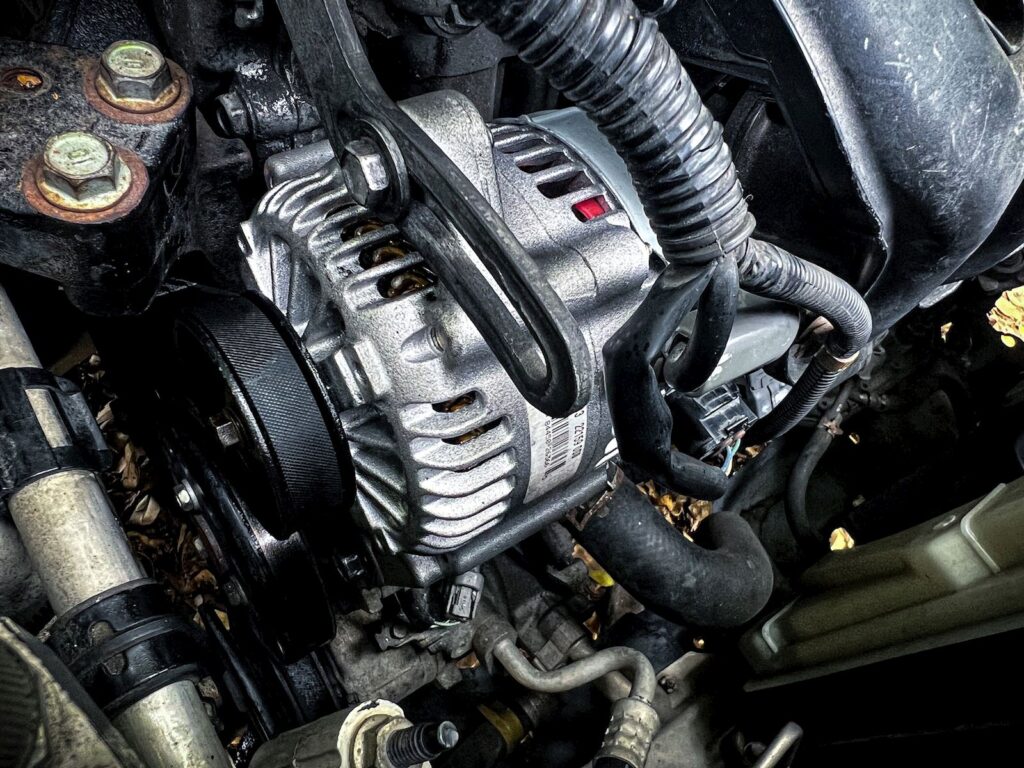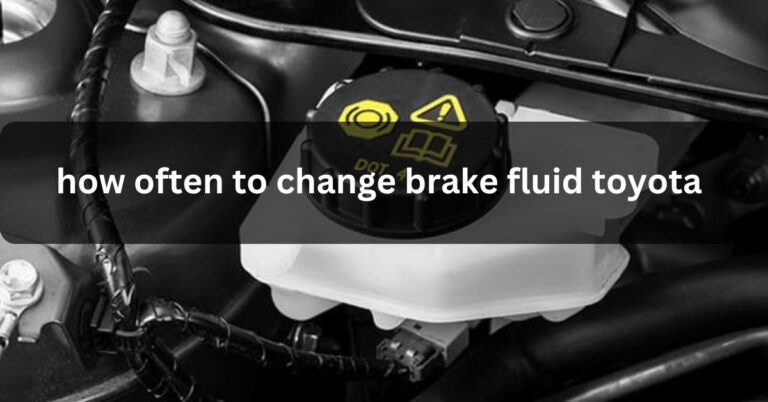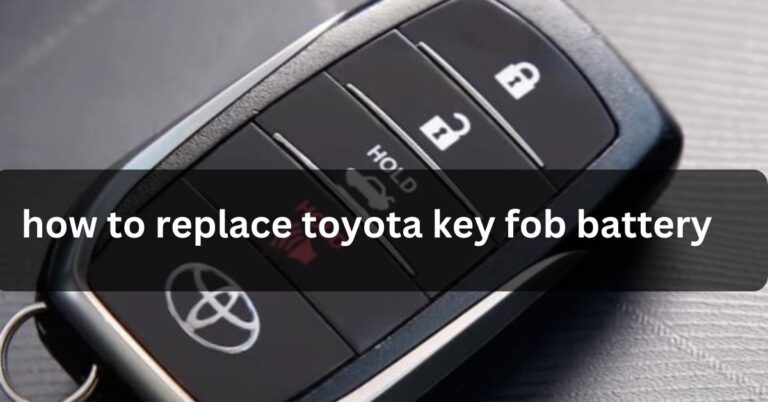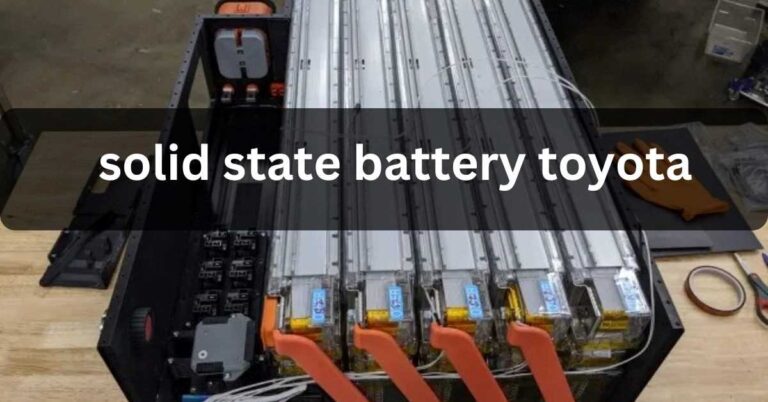Toyota Alternator Replacement Cost – Know About It!
Replacing my Toyota alternator cost between $300 and $900, covering both the new part and the labor. The alternator itself was $200 to $600, and labor costs ranged from $100 to $300
Replacing a Toyota alternator usually costs between $300 and $900. This covers both the new alternator and the labor to install it. New alternators typically cost $200 to $600, and labor costs range from $100 to $300.
Toyota alternator replacement cost? Let’s break down the costs and help you save money on this important repair!
What is the average cost to replace an alternator in a Toyota?
The average toyota alternator replacement cost from $300 to $900. This total includes the price of the alternator itself and the labor to install it. For the alternator alone, you can expect to pay between $200 and $600,
depending on whether you choose a new, rebuilt, or aftermarket part. Labor costs usually range from $100 to $300, depending on the repair shop and the complexity of the job. Prices can vary based on your Toyota model and local labor rates.
How much does a new Toyota alternator typically cost?
A new Toyota alternator typically costs between $200 and $600. The price varies based on your Toyota model and where you purchase the alternator. Buying directly from a dealership often results in higher costs.

while auto parts stores and online retailers might offer more affordable options. Choosing between brand-new, rebuilt, or aftermarket alternators can also affect the price. It’s a good idea to compare prices and consider the warranty and quality of the alternator before making a purchase.
2018 toyota alternator replacement cost:
For a 2018 Toyota, the cost to replace the alternator generally ranges from $400 to $800. This estimate includes both the parts and labor. The alternator itself typically costs between $250 and $500, while labor charges usually fall between $150 and $300.
Prices can vary based on the specific Toyota model and local labor rates. Opting for a new, rebuilt, or aftermarket alternator can also affect the overall cost.
What are the signs that indicate a Toyota alternator needs replacement?
Warning Light:
If you notice a dashboard warning light shaped like a battery or an alternator, it is a strong indicator that your alternator could be experiencing problems. This light often means the alternator isn’t charging the battery correctly, and it’s essential to have it checked out promptly to avoid further issues.
Dim or Flickering Lights:
When your headlights or interior lights start to dim or flicker, it can be a sign that the alternator is failing to provide a consistent flow of electrical power. This irregularity in light intensity is often due to the alternator struggling to keep up with the electrical demands of your vehicle.
Electrical Issues:
Malfunctions with various electrical components, such as the radio suddenly cutting out, power windows operating sluggishly, or the air conditioning not functioning properly, can point to alternator problems. These issues occur because the alternator is not supplying a steady and reliable amount of power to these systems.

Difficulty Starting:
If you experience difficulty starting your car or find that the battery frequently dies, it could be a result of a failing alternator. The alternator’s role is to charge the battery while the engine is running, so a malfunction can lead to starting issues and frequent battery failures.
Strange Noises:
A grinding, whining, or squealing noise coming from the engine compartment may indicate that the alternator’s internal bearings or other components are wearing out. These noises often signal that the alternator is struggling and may need to be replaced to prevent further damage.
Burning Smell:
A burning smell emanating from the engine bay is a serious warning sign that the alternator might be overheating or experiencing electrical issues. This odor could be due to the alternator’s components becoming excessively hot, which can lead to further mechanical problems if not addressed immediately.
Does the cost of alternator replacement vary by Toyota model?
Model-Specific Parts:
Different Toyota models may require alternators with different specifications or sizes, which can affect the price. For example, a high-performance model or one with additional electrical features might have a more expensive alternator.
Complexity of Installation:
Some Toyota models have more complex engine layouts or additional components that make the alternator harder to access. This can lead to higher labor costs due to the increased time and effort required for installation.
Aftermarket vs. OEM Parts:
The choice between aftermarket and OEM (original equipment manufacturer) alternators can influence the cost. OEM parts are generally more expensive but ensure compatibility and reliability, while aftermarket parts can be more affordable but may vary in quality.
Local Labor Rates:
Labor costs can differ based on the model’s complexity and local repair shop rates. More complex models that require additional labor may lead to higher overall costs for replacement.
Additional Repairs:
In some cases, replacing the alternator might reveal or necessitate additional repairs or adjustments, particularly in older or high-mileage models. This can further impact the total cost.
What factors affect the health of Toyota alternator?
Electrical Load:
The alternator generates electricity to power the vehicle’s electrical systems and charge the battery. Excessive electrical load from added accessories or high-demand components can strain the alternator, leading to premature wear or failure.
Driving Conditions:
Frequent short trips, stop-and-go traffic, or extreme temperatures can affect the alternator’s performance. In particular, short trips don’t allow the alternator enough time to fully charge the battery, while extreme temperatures can cause the alternator to overheat or degrade.
Belt Condition:
The alternator is powered by a belt that links it to the engine. If the serpentine belt is worn, loose, or damaged, it can affect the alternator’s efficiency and lead to improper charging of the battery.

Battery Health:
A weak or failing battery can put extra strain on the alternator, as it has to work harder to charge the battery and supply power to the vehicle’s electrical systems. Conversely, a malfunctioning alternator can also cause battery issues.
Electrical Connections:
Corroded or loose electrical connections can disrupt the flow of electricity and cause the alternator to perform inefficiently. Ensuring that all connections are clean and secure is crucial for optimal alternator function.
Quality of Parts:
Using high-quality or OEM alternators and components can significantly impact the longevity and reliability of the alternator. Poor-quality or incompatible parts may lead to frequent failures or reduced performance.
Overheating:
Alternators can overheat due to excessive engine temperatures or a malfunctioning cooling system. Overheating can cause internal damage and reduce the alternator’s lifespan.
Regular Maintenance:
Routine vehicle maintenance, including checking and replacing worn components, can help prevent issues with the alternator. Regular inspections can catch potential problems early and extend the alternator’s service life.
FAQS:
Is it worth buying an extended warranty for a new alternator?
An extended warranty can provide added peace of mind and coverage for potential future repairs. Weigh the cost of the warranty against the alternator’s price and your risk tolerance to decide if it’s a worthwhile investment.
Are there any hidden costs associated with alternator replacement?
Hidden costs may include additional repairs discovered during the replacement process, such as fixing related components or addressing any electrical issues. It’s a good idea to ask the repair shop for a detailed estimate to understand the full scope of the potential costs.
Can a failing alternator affect my car’s fuel efficiency?
Yes, a failing alternator can indirectly affect fuel efficiency. If the alternator is not functioning correctly, it may cause the engine to work harder, which can lead to decreased fuel efficiency.
What should I do if my alternator replacement cost is higher than expected?
If the replacement cost is higher than expected, review the repair shop’s invoice to ensure all charges are accurate. Discuss any discrepancies with the shop and consider getting a second opinion if necessary.
Can I use a universal alternator for my Toyota?
While universal alternators might fit, it’s generally recommended to use a part specifically designed for your Toyota model to ensure compatibility and optimal performance. Always check the specifications before purchasing.
Conclusion:
Replacing a Toyota alternator usually costs between $300 and $900, which includes both the price of the new alternator and the labor to install it. New alternators generally cost between $200 and $600, and labor can range from $100 to $300.
Read:
- How To Reset Maintenance Light On Toyota Tacoma – Lets Talk About It!
- How To Reset Maintenance Light On Toyota Carolla – A Simple Guide!
- What Kind Of Oil Does A Toyota Camry Take – Know About It!

I’m Harry Edward, your Toyota car expert. With 5 years of experience in Toyota car repair, I share practical tips and insights to help you keep your vehicle in top condition.
From routine maintenance to fixing common issues, my goal is to make your Toyota ownership experience smooth and enjoyable.







